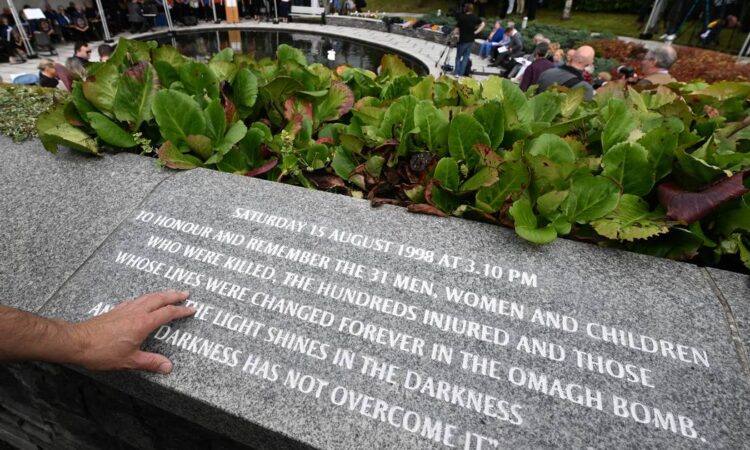
Ireland will provide assistance to the UK’s upcoming inquiry into the Omagh bombing, the Cabinet has agreed.
A preliminary hearing chaired by Lord Turnbull takes place on July 30th.
The 1998 atrocity in Omagh saw 29 people, including a woman pregnant with twins, killed by a Real IRA bomb.
The inquiry comes after a Belfast High Court judge in 2021 recommended that the British government should carry out a human rights-compliant investigation into alleged security failings in the lead-up to the attack.
Mr Justice Horner found it was potentially plausible the attack could have been prevented.
The Coalition here pledged support for the inquiry when it was announced last year.
On Tuesday Tánaiste and Minister for Foreign Affairs Micheál Martin and Minister for Justice Helen McEntee got Cabinet approval for assistance to be provided to the inquiry.
A Government spokesman said this honoured a commitment given to the Omagh families.
Ireland has also accepted an invitation to be represented at the preliminary hearing on July 30th in an observer capacity.
Officials from the Departments of Foreign Affairs and Justice “will continue to work with the inquiry team including on how best to structure engagement over the course of the UK inquiry”, the spokesman said.
Separately, Minister for the Environment and Transport Eamon Ryan briefed Cabinet on public transport company CIÉ’s 2023 annual report; progress in the National Broadband Plan (NBP); and plans for a framework to offset potential disputes between the seafood industry and the offshore wind sector.
CIÉ Group, which includes Irish Rail, Bus Éireann and Dublin Bus, saw revenue increase last year by €189 million to €1.6 billion and passenger numbers exceed pre-Covid-19 pandemic levels with just under 300 million journeys completed.
Passenger journeys on Dublin Bus rose by 25 million to 146 million, its highest figure in 20 years.
On the NBP, Ministers heard the company responsible for the roll-out, National Broadband Ireland, has expressed confidence that it can deliver the programme on time and within the agreed maximum budget of €2.7 billion despite delays caused by the pandemic.
Some 261,000 premises of the overall plan of 600,000 premises have been passed by the new network and these can be connected to broadband immediately.
Some 86,000 premises have been connected so far with a further 5,500 connections pending and uptake levels are said to be exceeding original projections.
Mr Ryan also briefed colleagues on plans to develop a national framework agreement between the seafood and the offshore renewable energy sectors. This will be designed to facilitate pre-construction surveys necessary to progress offshore wind projects which are deemed to be fundamental to meeting Ireland’s renewable energy, climate, energy security and competitiveness ambitions.
Until now local agreements have been negotiated between developers and impacted parties.
A Government spokesman said “this has proved challenging” and “a national framework agreement between the two sectors is proposed to protect the interests of the seafood industry while enabling timely development and delivery of offshore renewable projects”.






